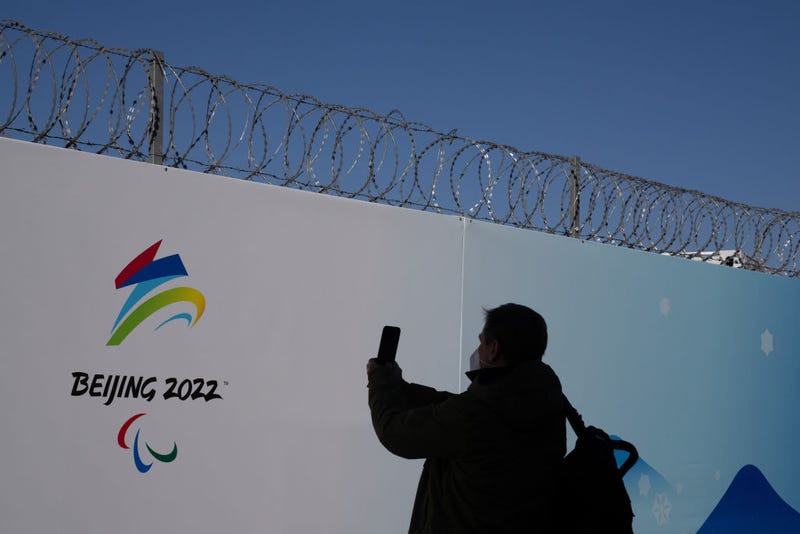
When U.S. Olympic athletes are packing to leave for the winter games in Beijing, they should remember to bring an item that is often used by drug dealers, according to the FBI.
Citing possible "malicious cyber activities," the FBI has issued a warning to Olympic athletes, telling them to use burner phones when they attend the Beijing Winter Olympics this month to avoid Chinese surveillance. Burner phones are cheap, pay-as-you-go cellphones meant to be discarded after a short period of time.
"The FBI urges all athletes to keep their personal cell phones at home and use a temporary phone while at the Games," the agency said in a notification issued Monday. "The National Olympic Committees in some Western countries are also advising their athletes to leave personal devices at home or use temporary phones due to cybersecurity concerns at the games."
The FBI said the use of new digital infrastructure and mobile applications, such as digital wallets or those required to participate or stay in the country, could also increase the opportunity for cyber criminals to steal personal information or install tracking tools. Athletes at the Olympics are required to use the smartphone app, MY2022, to track their health and travel data.
The warning comes after U.S. intelligence officials claimed the Chinese government has developed advanced surveillance technology.
"There is no country that presents a broader, more severe threat to our innovation, our ideas and our economic security than China does," FBI Director Christopher Wray said in an interview with NBC News. "The scale of their hacking program, and the amount of personal and corporate data that their hackers have stolen, is greater than every other country combined."
The FBI said it is not aware of any specific cyber threat against the Olympics. However, it noted that malicious cyber actors could use a broad range of cyber activities to disrupt the events.
"These activities include distributed denial-of-service attacks, ransomware, malware, social engineering, data theft or leaks, phishing campaigns, disinformation campaigns, and insider threats," the FBI said.
The most popular cyber attack methods used during previous Olympics were malware, email spoofing, phishing and the use of fake websites and streaming services designed to look like official Olympic service providers, according to the FBI. Criminals could also target the networks of hotels, mass transit providers, ticketing services, event security infrastructure or similar Olympic support functions.
While many cybersecurity measures are already in place, the FBI suggested individuals and businesses should remain vigilant and maintain best practices in their network and digital environments.
The Beijing Olympics officially open on February 4 and come to a close on February 20.


